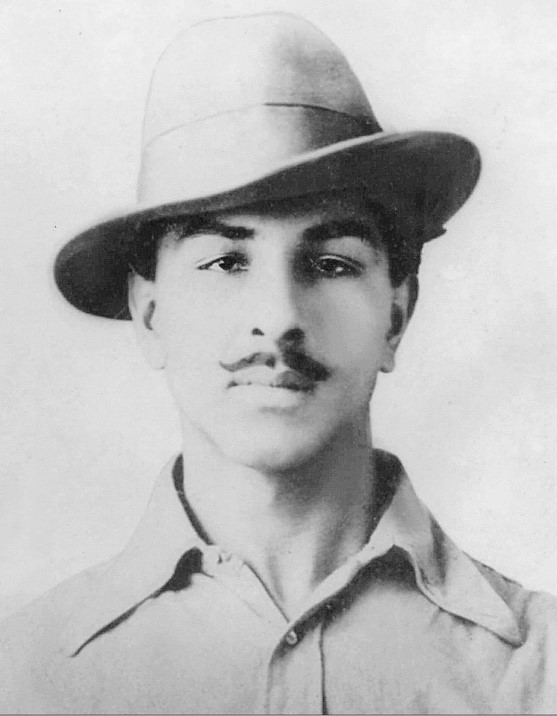Description

Disclaimer: Copyright infringement not intended.
Context
- 28th September marked the 116th birth anniversary of Bhagat Singh.
Details
- Bhagat Singh, a prominent figure in India's struggle for independence, is remembered as a fearless patriot, revolutionary, and martyr. His life and actions continue to inspire generations of Indians.
Early Life and Family
- Birth and Childhood: Bhagat Singh was born on September 28, 1907, in Banga, a small town in Punjab, British India (now in Pakistan). He came from a Sikh family deeply involved in the freedom struggle.
- Influences: His family was influenced by the Ghadar Movement and the Jallianwala Bagh massacre, which fueled his early patriotism and revolutionary fervor.
Involvement in the Freedom Struggle
- Hindustan Socialist Republican Association (HSRA): Bhagat Singh joined the HSRA, a revolutionary organization dedicated to overthrowing British rule through armed struggle.
- Protest Against Simon Commission: In 1928, he protested against the Simon Commission, which didn't have Indian representation. During this protest, Lala Lajpat Rai was injured in a police baton charge, leading to his death.
- Assembly Bombing: In April 1929, Bhagat Singh and Batukeshwar Dutt threw non-lethal smoke bombs in the Central Legislative Assembly in Delhi to protest against repressive laws. They sought to be arrested and used the trial as a platform for revolutionary ideals.
- Lahore Conspiracy Case: Bhagat Singh was arrested and subsequently involved in the Lahore Conspiracy Case, where he was charged with the killing of J.P. Saunders, a police officer involved in Lala Lajpat Rai's death. He and his associates were sentenced to life imprisonment.
- Hunger Strike: While in prison, Bhagat Singh went on a hunger strike to protest the mistreatment of political prisoners. His demands included equal rights for Indian prisoners and better living conditions.

Martyrdom
- Despite widespread protests and demands for clemency, Bhagat Singh, along with Rajguru and Sukhdev, was executed on March 23, 1931, in Lahore Central Jail.
- Their sacrifice deeply moved the Indian masses and intensified the struggle for independence.
Ideology and Legacy
- Socialism and Secularism: Bhagat Singh was not only a patriot but also a socialist. He believed in an India where wealth was equitably distributed, and people of all religions lived harmoniously.
- Commitment to Non-Violence: Although he turned to violence as a means of protest, Bhagat Singh remained committed to non-violence in his personal life and often read the works of Mahatma Gandhi.
- Icon of Sacrifice: Bhagat Singh's courage, sacrifice, and patriotism made him an icon of the freedom struggle. His famous slogan, "Inquilab Zindabad" (Long Live the Revolution), continues to inspire generations.
- Impact on the Youth: He remains a role model for young Indians who aspire to bring positive change to society and the nation.
- Cultural Impact: Bhagat Singh's life has been portrayed in numerous books, films, and documentaries, further popularizing his story.
Books
Here are some notable writings and works associated with Bhagat Singh:
- Why I am an Atheist: This is perhaps one of Bhagat Singh's most famous writings. He penned this essay in 1930 while in prison, explaining his atheistic beliefs and his rejection of religious dogma. In it, he argued that he was an atheist because he found no scientific evidence for the existence of God.
- To Young Political Workers: Another significant essay written by Bhagat Singh in prison. In this essay, he encouraged young political workers to maintain discipline, unity, and dedication to the cause of India's freedom struggle.
- The Jail Notebook: During his imprisonment, Bhagat Singh maintained a diary known as the "Jail Notebook." It contained his thoughts, reflections, and quotes from various books he had read. This notebook provides valuable insights into his intellectual development and his commitment to the struggle for independence.
- Other Writings: Bhagat Singh also wrote numerous letters to his family, friends, and comrades while in jail. These letters reflect his deep love for his country, his concerns about the state of the freedom movement, and his hopes for a better future.
- Influence on Revolutionary Literature: Bhagat Singh's life and actions have inspired many authors, poets, and playwrights to create literary works based on his story. Several books, plays, and poems have been written about him, contributing to his enduring legacy.
.jpg)
Conclusion
Bhagat Singh's life and sacrifice embody the spirit of selfless dedication to one's country and ideals. He continues to be a symbol of courage and patriotism, reminding Indians of the sacrifices made by those who fought for their freedom. His legacy endures as a source of inspiration for people all over the world who seek justice, equality, and a better society.
|
PRACTICE QUESTION
Q. Bhagat Singh is often remembered as a symbol of revolutionary zeal and sacrifice in India's struggle for independence. Analyze the impact of Bhagat Singh's actions and ideologies on the course of the freedom movement and the broader socio-political context of his time. How did his legacy shape the future trajectory of India? (250 Words)
|







